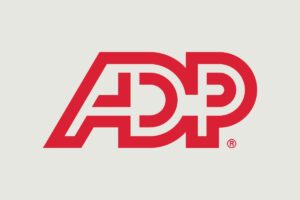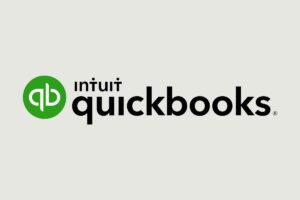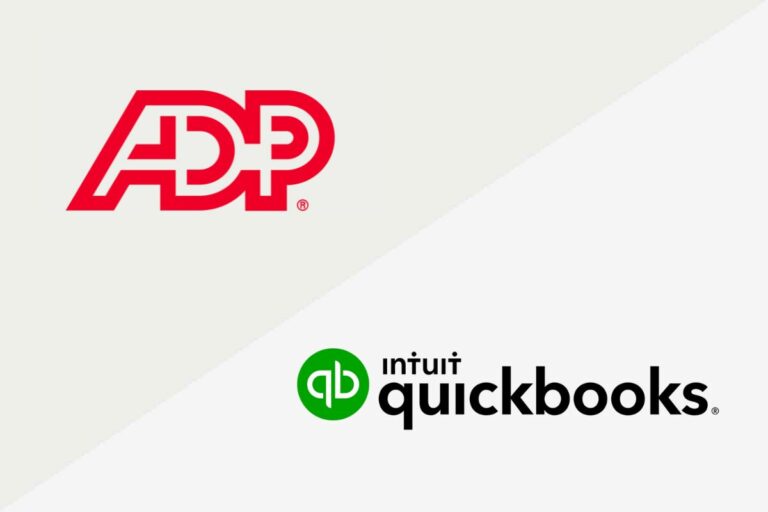Choosing the right payroll solution is a critical decision for UK businesses. ADP and QuickBooks Payroll are two leading options, each with its unique strengths and offerings. This article provides an in-depth comparison of ADP vs QuickBooks Payroll, focusing on their features, pricing, and suitability for different business sizes and needs.
ADP vs QuickBooks Payroll
| Feature/Fee | ADP | QuickBooks Payroll |
|---|---|---|
| Target Market | Medium to large businesses, international scope | Small to medium-sized businesses |
| Integration Capabilities | Broad integration with various systems | Seamless integration with QuickBooks software |
| Technology and Scalability | Advanced technology, highly scalable | User-friendly, suitable for smaller operations |
| Global Operations Support | Extensive support for international payroll | Primarily focused on UK businesses |
| Compliance Management | Comprehensive compliance, including international standards | Efficient compliance with UK payroll legislation |
| Customisable Reporting | Detailed and adaptable reporting options | Standard payroll reporting |
| User Interface | Sophisticated and comprehensive | Simple and intuitive |
| Automatic Tax Calculations and Submissions | Yes | Yes |
| Flexibility in Payroll Runs | Flexible payroll scheduling | High flexibility in payroll frequency |
| Pricing Model | Customised based on business needs and scale | More straightforward, tiered pricing |
| Cost Range | Typically higher, varies per business size and needs | Generally more affordable, clear pricing tiers |
This table provides an overview of the main differences between ADP and QuickBooks Payroll.
ADP stands out for its scalability and advanced features, making it a strong option for larger businesses or those with international payroll needs.
QuickBooks Payroll, on the other hand, is highly integrated with QuickBooks accounting software and offers a simpler, more cost-effective solution for smaller businesses.
When choosing a payroll system, consider factors such as your business size, the complexity of payroll needs, existing software ecosystems, and budget to determine the most suitable option.
- Takes 2 minutes
- Receive quotes to compare
- Easy and no commitment
Overview of ADP

ADP (Automatic Data Processing) is a global leader in payroll and HR solutions. It offers a comprehensive range of services and is known for its robustness and scalability, making it ideal for medium to large enterprises and businesses with international operations.
Key features of ADP
- Global Scalability: Excellent for businesses with global reach or those planning to expand internationally.
- Advanced Technology: Incorporates state-of-the-art technology for efficient payroll processing.
- Comprehensive Compliance: Ensures compliance with international standards and UK-specific payroll legislation.
- Customisable Reporting: Provides detailed and adaptable reporting options.
Pricing of ADP
ADP offers customised pricing based on the specific needs and scale of the business. This approach caters to a wide range of business sizes but typically skews towards higher pricing for more advanced features.
Overview of QuickBooks Payroll

QuickBooks Payroll, part of the QuickBooks family, is particularly popular among small to medium-sized businesses. It is renowned for its integration with QuickBooks accounting software, offering a streamlined solution for businesses already using QuickBooks for accounting.
Key features of QuickBooks Payroll
- Seamless Integration with QuickBooks: Ideal for businesses using QuickBooks accounting software.
- User-Friendly Interface: Known for its simplicity and ease of use.
- Automatic Tax Calculations: Efficiently handles tax calculations and submissions.
- Flexible Payroll Runs: Offers the flexibility to run payroll as often as needed.
Pricing of QuickBooks Payroll
QuickBooks Payroll pricing is more straightforward and generally more affordable than ADP, with clear tiered pricing structures. It is a cost-effective choice, especially for smaller businesses.
- Give your requirements
- Receive quotes to compare
- Choose a provider or walk away - your choice!
Comparison and conclusion
- Target Audience: ADP is better suited for medium to large businesses and those with international needs. In contrast, QuickBooks Payroll is ideal for small to medium-sized businesses, especially those already using QuickBooks accounting software.
- Technology and Scalability: ADP offers advanced technology solutions and is highly scalable, making it suitable for larger and growing businesses. QuickBooks Payroll, while efficient, is more suited to smaller scale operations.
- Integration: QuickBooks Payroll seamlessly integrates with QuickBooks accounting software, providing a unified platform for financial management. ADP offers broader integration capabilities with various systems.
- Pricing: ADP has a customised pricing model, generally higher, reflecting its advanced features and scalability. QuickBooks Payroll is more budget-friendly, appealing to smaller businesses with its clear pricing tiers.
In summary, the choice between ADP vs QuickBooks Payroll depends largely on your business size, growth trajectory, and existing software ecosystem. ADP is a robust choice for larger businesses or those with complex payroll needs and international scope. QuickBooks Payroll is an excellent option for smaller businesses seeking an integrated solution with their accounting software and a more straightforward payroll process. Assess your business requirements to determine the best fit.
FAQ – ADP vs QuickBooks Payroll
ADP offers a sophisticated platform suitable for users requiring comprehensive payroll features, whereas QuickBooks Payroll is known for its simplicity and ease of use, ideal for beginners.
Yes, both ADP and QuickBooks Payroll provide efficient automatic tax calculation and submission services, ensuring compliance with UK tax laws.
ADP offers a broader range of integration capabilities with various HR and accounting systems, while QuickBooks Payroll is specifically designed to integrate seamlessly with QuickBooks accounting software.
While ADP can cater to small businesses, it’s more tailored to medium and large enterprises. QuickBooks Payroll is particularly well-suited for small to medium-sized businesses.
ADP is highly scalable, making it a better fit for rapidly growing or large businesses, whereas QuickBooks Payroll is more suitable for smaller businesses with moderate growth.
ADP provides more detailed and customisable reporting capabilities compared to QuickBooks Payroll, which offers standard payroll reports.
Both systems ensure compliance with UK payroll regulations, but ADP also offers comprehensive support for international compliance, which is not a focus for QuickBooks Payroll.
ADP typically offers more extensive customer support and training, given its global presence and focus on larger businesses. QuickBooks Payroll provides adequate support tailored to smaller businesses.
Yes, ADP generally has a customised and often higher pricing structure, reflecting its broader range of features. QuickBooks Payroll offers more straightforward, tiered pricing, making it more budget-friendly for smaller businesses.
While QuickBooks Payroll is designed for ease of use even without a payroll specialist, ADP, with its more complex features, may require more expertise to navigate effectively.


